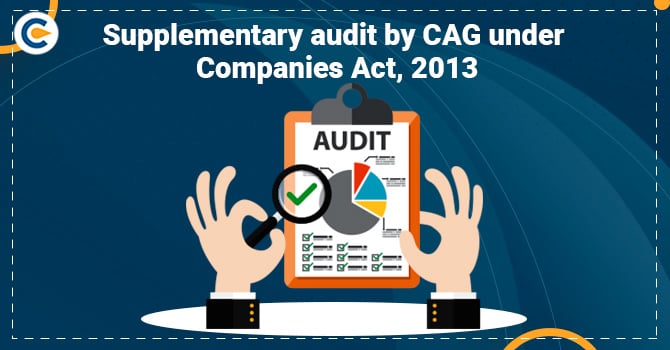Once you are done with Public Limited Company Registration, the next step is to follow the annual compliances prescribed by the Companies Act, 2013. The Public Limited Companies are classified in two that are Listed and Unlisted Public Limited Companies. A minimum of seven or more persons can start a Public Limited Company. The Public Limited Companies are bounded to follow the annual and periodic compliances. A Public Limited Company has to pay hefty fines and penalties in case of non- Compliance.
List of Annual and Periodic Compliance for a Public Limited Company!
The Compliances, whether it be annual or periodic, is based on the following broad categories:
| 1. | The various compliances with the Registrar of Companies or ROC along with all Rules and Regulations as per the Companies Act, 2013. |
| 2. | GSTN and all the various Tax-Related Compliances. |
| 3. | For only listed Public Companies- the compliances related to different Rules and Regulations associated with SEBI, including the Listing regulations of 2015. |
| 4. | The compliances with all the secretarial standards I & II. |
| 5. | Various Event- Based Compliances. |
| 6. | Some of the Compliances are related to various statutes and Acts such as RBI, FEMA, Excise and Customs Laws, etc. |
What is a Public Limited Company?
A Public Limited Company is explained under Section 2(71) of the Companies Act, 2013[1]. Firstly, a Public Limited Company is a company that offers shares to the general public and has limited liability. Secondly, a Public Limited Company is required to publish its true financial status to its shareholders. It is also provided that a subsidiary company shall also be deemed to be a public company though it continues to function as a private company in its articles.
What is a Listed and Unlisted Company?
Listed Company
- A listed Company is explained in Section 2(52) of the Companies Act, 2013.
- A listed company means a company has its securities listed on any recognized Stock Exchange.
- A listed Companies shares can be traded in the stock exchange.
- A listed Company is recognized as a Public Limited Company because it makes an Initial Public Offering or IPO to sell its shares to the public and to get capital in return.
Unlisted Company
- An unlisted Company has not been explained in the Companies Act, 2013.
- An unlisted Company can be a Public Limited Company or a Private Limited Company.
- The shares of the unlisted companies are not available for the general public.
- An unlisted Company is not listed in any stock exchange because it does not have any limited number of shares.
- An unlisted Company can have an unlimited number of shareholders for raising capital for any commercial venture.
What are the Annual Compliances for Listed Public Limited Company?
The following are the most important and significant compliances for a Public Limited Company:
| S. No | Compliance | Particulars of Compliances | Form No | Section | Due Date |
| 1. | Annual General Meeting | Annual General Meeting to be conducted as per the provisions of the Act. | Form MGT-15 | Section 121(1) of the Companies Act,2013 | Within thirty days from date of its incorporation. |
| 2. | Financial Statements | Balance sheet, Director’s Report, Cash Flow Statement Auditor’s Report and the consolidated Financial Statement prepared in Extensible Business Reporting System (XBRL). | Form AOC-4 | As per Section 137 of the Companies Act to be read with Rule 12(2) of the Companies (Accounts) Rules, 2014. | Within thirty days of holding the Annual General Meeting or AGM |
| 3. | Annual Return | Information about the directors and shareholders is to be filed with relevant Registrar of Companies | MGT-7 | According to section 92 of the Companies Act, 2013 to be read with Rule 11(1) of the Companies (Management and Administration) Rules 2014. | Within sixty days of the Annual General Meeting(AGM) |
| 4. | Financial and Director’s Report | Adoption of Financial and Director’s Report | Form MGT-14 | Section 173 read along with Secretarial Standards 1 | Within thirty days from the Board Meeting |
| 5. | Income Tax Returns | Income Tax Returns must be filed before the Tax Department. | Form ITR-6 | On or before 30th September of the financial year | |
| 6. | Secretarial Audit Report | Submission of Secretarial Audit Report along with the Board Report when: Its total Paid- up capital is equal to or crosses Rs.50 crore or Its annual turnover is equal to or exceeds Rs 250 crore. | Form MR-3 | Section 204 of Companies Act, 2013 to be read with Rule 9 of The companies (Appointment and Remuneration Personnel) Rules, 2014. | Before appointment or reappointment of The Secretarial Auditors. |
| 7. | Compliances under all Rules and Regulations associated with SEBI | Includes the Listing Regulations of 2015 | Listing Regulations of 2015, SEBI |
Event-Based Compliances for a Listed Company
There is some event-based annual Compliance to be followed in case of occurrence of certain events like:
- Change in the internal administration of the company.
- Unexpected activities to be performed by the company.
- Some expected or unexpected corporate growth.
- Any unforeseen activities which can lead to some change in the company’s registration.
Some of the other laws such as RBI, FEMA, IPR, and ESI Regulations, etc. also bring compliances. A Public Limited Company has to follow compliances accordingly.
Read our article:What are The Compliance and Annual Filing Requirements of One Person Company?
What are the Annual Compliances for Unlisted Public Limited Company?
The Companies Act, 2013 and rules made thereunder provide for annual compliance for unlisted Public Limited Company which is mentioned below:
Annual Compliances for Unlisted Company
| S.No | Compliance | Particulars of Compliance | Form No. | Section and Rules | Due Dates |
| 1. | Board Meeting | Discussions related to appointment or reappointment of auditor or any such related issues. | Section 173 of the Companies Act | At least 4 Board meeting in a year. | |
| 2. | Appointment of Cost Auditor | Issue the Letter of Appointment to Cost Auditor and intimation to be made to Central government about its appointment. | Form CRA-2 | As per Section 148(3) along with Rule 6(2) and Rule 6(3A) of the Companies (Cost Records and Audit) Rules,2014 | Original Appointment to be done within 30 days of Board Meeting or 180 days of Financial year, whichever is earlier Casual Vacancy to be filled within 30 days of Board Meeting. |
| 3. | Return of Deposits(DPT) | The Return of Deposit should be filed before the Registrar of Companies or ROC. | Form DPT-3 | As per Rule 16 of Companies (Acceptance or Deposit) Rules, 2014 | 30th June of every year. |
| 4. | Appointment of CEO or CFO or CS | Appointment of full time or casual CEO or CS or CFO | Form MGT-14 & Form DIR-12 | According to Section 203 read with Rule 8 & 8A of the Companies (Appointment and remuneration of Managerial Personnel) Rules, 2014. | Within 30 days of the Annual General Meeting and in case of casual vacancy within 6 months. |
| 5. | Annual General Meeting | Conducting Annual General Meeting for declaration of dividend. | Section 96 of the Companies Act, 2013 | The first Annual General Meeting is to be held within 9 months of the end of financial year. | |
| 6. | Special Resolution | Special Resolution passed at Annual General Meeting | Section 117 of the Companies Act, 2013 to be read with Rule 24 of the Companies (Management and Administration) Rules, 2014. | Within 30 days of passing the resolution. | |
| 7. | CSR Committee | Hold meeting and approve CSR Activities | Section 135 of the Companies Act, 2013 read with companies(Corporate Social Responsibility Policy) Rules, 2014 & SS-1 | Four Board meetings with a gap of not less than 120 days between two Board meetings. | |
| 8. | Director’s Disclosure | Director’s need to disclose financial interest in the company. | Form MBP-1 | Section 184(1) of the Companies Act, 2013 to be read along with Rule 9(1) of the Companies (Meetings of Board and its Powers) Rules,2014. | After its appointment in first meeting. |
Event-Based Compliances for Unlisted Company
There are some event-based Compliances for an unlisted company like:
- Alteration made in Memorandum of Association or Articles of Association.
- Change in the name of the registered office and change of address
- Any changes caused by the occurrence of certain events.
How to easily get Annual Compliance for Public Limited Company?


Conclusion
By reading the above article, it is clear that after incorporation of a Public Limited Company, the compliances which are listed in Companies Act must be followed. Not following the relevant provisions may lead to a penalty. Companies Act,2013 prescribes Penalties for not complying with the Compliance Rules. The Companies will be liable to pay a heavy fine, or additionally, the directors can face the punishment of imprisonment. These regulations bring a better structure, greater Independence, and balanced checks in the functioning of a public Limited Company.
Read our article:Advantage and Disadvantage of Public Company Registration











